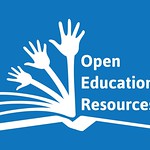Definition of Open Educational Resources (OER)
OER are freely and publicly available teaching, learning, and research resources that reside in the public domain or have been released under an intellectual property license that permits their free use and re-purposing by others. For example, instructors may download the material, tailor it to one’s course, save a copy locally to share with one’s students and share it back out with attribution. OER can include textbooks, course materials and full courses, modules, streaming videos, tests, software, and any other tools, materials, or techniques used to support access to knowledge. An open source (or open) textbook is a textbook which is OER.
Definition of Open Access (OA)
Open access refers to teaching, learning and research materials that are available free online for anyone to use as is, but they may not be revised, remixed, or redistributed. This terminology is typically used for scholarly works (journals, books, etc.), but can also refer to other class materials. Examples of OA materials include government documents, articles from open access journals, reports from think tanks.
Description of Library-Licensed Course Content
“Library-licensed materials” are course materials, which are available free to library patrons. They include eBooks and print versions of books on reserve. The eBooks may or may not be downloadable/retainable; they may or may not be accessed offline; the license may allow for multiple users or only one user to use the material at the same time. Library-licensed materials can be adopted for courses. While they are free for library patrons, they are not free—rather, they have been paid for by the library.
Faculty can explore library databases to find course materials, including e-books, online video, images, data, articles, and more. They can adopt a library e-book as an alternative to print textbooks. They can find and adopt open or free content through the VIVA Faculty Textbook Portal. For more information on these options, please contact Paul Boger, UMW OER and Scholarly Communications Librarian (pboger@umw.edu).
Definition of Affordable Course Content
Affordable course content describes any free, low-cost, or openly licensed educational resources that can serve as alternatives to high-cost resources. At UMW, low-cost is defined as requiring students to spend no more than $40 in total for course materials. Affordable course content can include textbooks, digital courseware, course modules, videos, journal articles, and any other materials used to support learning.
Most affordable course content still retains traditional copyright licensing, including restrictions on how a resource can be used or shared. The exception is OER, which are free of cost and most copyright restrictions, allowing them to be freely used, revised, saved, and distributed.
[ next question: What OER/Open Course Materials are available other than complete texts? ]
Image “oer_logo_EN_1” courtesy of Breno Trautwein via flickr.com

Recent Comments